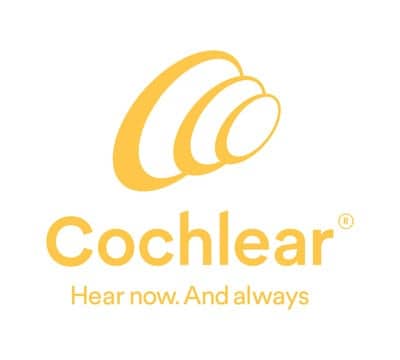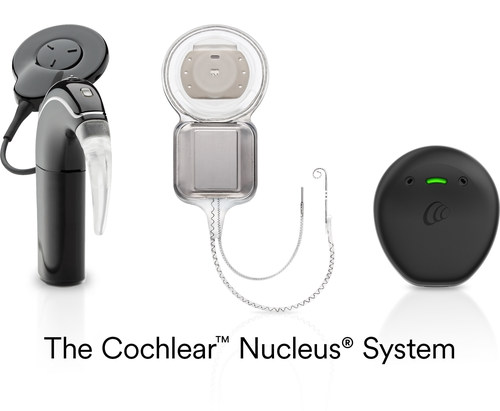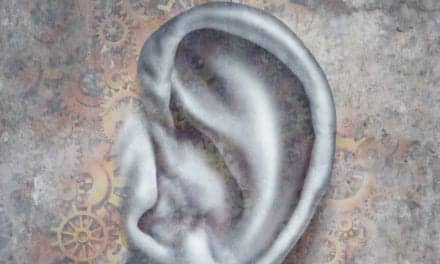Cochlear Limited (ASX: COH) announced that it has obtained US Food and Drug Administration (FDA) approval of Cochlear Nucleus Implants for the treatment of unilateral hearing loss (UHL)/single-sided deafness (SSD).
Related article: Cochlear Implantation May Benefit Children with ASD
Cochlear implants are already FDA approved for those with moderate-to-profound bilateral sensorineural hearing loss. With this approval, Cochlear can expand implantable treatment options for those with UHL/SSD to include cochlear implants, for the first time, according to its announcement.
UHL is classified as hearing loss in one ear and near-to-near-normal hearing in the opposite ear, and SSD is specific to individuals with severe-to-profound hearing loss in one ear and normal or near-normal hearing in the other ear. Every year, about 60,000 people in the United States acquire SSD.1
“It is not often that approvals to expand indications and increase awareness about effective treatments for hearing loss come along. Now with this approval, Cochlear is proud to offer the most hearing implant options available to those with unilateral hearing loss/single-sided deafness through our cochlear implant and bone conduction solutions,” said Christine Menapace, MA, vice president, clinical affairs, Cochlear Americas. “It is important that those with this type of hearing loss recognize the impact to their lives and understand there are several options available to them, and we encourage them to talk to their hearing health professional today to find out what would work best for them.”
UHL/SSD can impact an individual’s quality of life, including mental fatigue because of increased listening effort, as well as impacts to understanding speech in noise and localizing where sounds are coming from.2-6 Hearing with both ears is important. Hearing with two ears helps one to identify sounds both near and far, as well as those that occur 360 degrees around the head.7
“Unilateral sensorineural hearing loss has continued to gain greater acceptance in the field as an indication for cochlear implantation,” said Dr Kevin Brown, Vice Chair, chief of neurotology and executive director of the Children’s Cochlear Implant Center at the University of North Carolina. “With this approval, it is important my industry colleagues and I ensure appropriate clinical guidance on how to effectively introduce this cochlear implant indication, outline a model for selecting patients that will benefit, and ensure success after implantation.”
Cochlear will now support those with UHL/SSD by offering its cochlear implant, the Cochlear Nucleus System, and bone conduction solutions, the Cochlear Osia System and the Cochlear Baha System.
References
- Weaver J. Single-sided deafness: Causes, and solutions, take many forms. The Hearing Journal. 2015;68(3):20-24.
- Buss E, Dillon MT, Rooth MA, et al. Effects of cochlear implantation on binaural hearing in adults with unilateral hearing loss. Trends Hear. 2018;22:1-15.
- Firszt JB, Reeder RM, Holden LK, Dwyer NY, Asymmetric Hearing Study Team. Results in adult cochlear implant recipients with varied asymmetric hearing: A prospective longitudinal study of speech recognition, localization, and participant report. Ear Hear. 2018;39(5):845-862.
- Tavora-Vieira D, Rajan GP, Van de Heyning P, Mertens G. Evaluating the long-term hearing outcomes of cochlear implant users with single-sided deafness. Otol Neurotol. 2019;40(6):e575-e580.
- Dillon MT, Buss E, Anderson ML, et al. Cochlear implantation in cases of unilateral hearing loss: Initial localization abilities. Ear Hear. 2017;38(5):611-619.
- Dillon MT, Buss E, Rooth MA, et al. Effect of cochlear implantation on quality of life in adults with unilateral hearing loss. Audiol Neurotol. 2017;22:259-271.
- Wazen JJ, Spitzer JB, Ghossaini SN, et al. Transcranial contralateral cochlear stimulation in unilateral deafness. Otolaryngology-Head & Neck Surgery. 2003;129(3):248-254.
Please seek advice from your health professional about treatments for hearing loss. Outcomes may vary, and your health professional will advise you about the factors which could affect your outcome. Always read the instructions for use. Not all products are available in all countries. Please contact your local Cochlear representative for product information.
Source: Cochlear
Image: Cochlear





